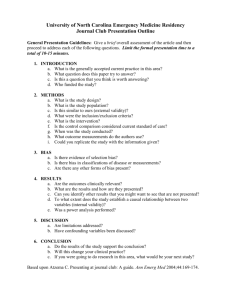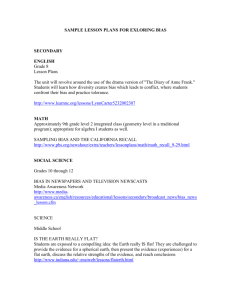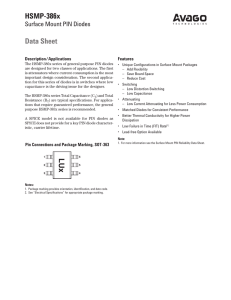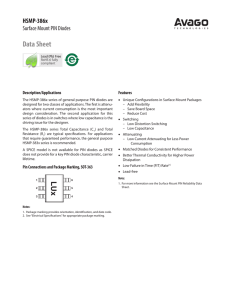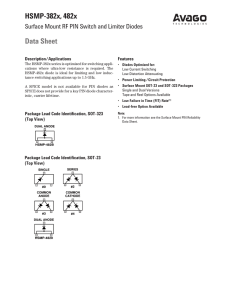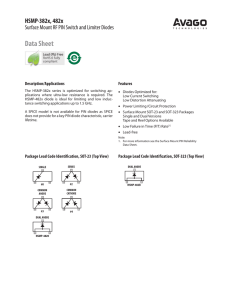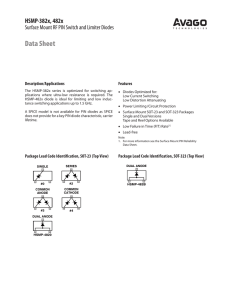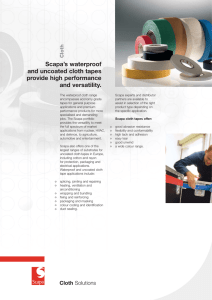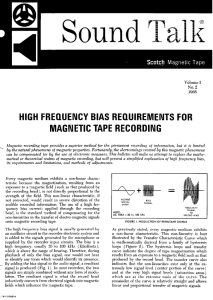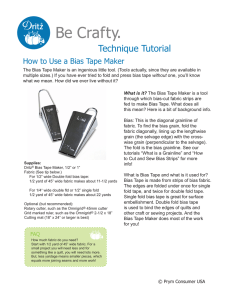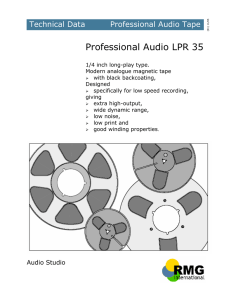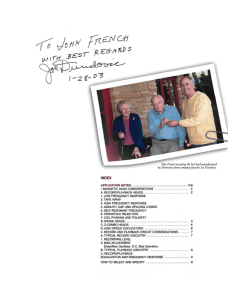Chapter 6 Review Answers
advertisement
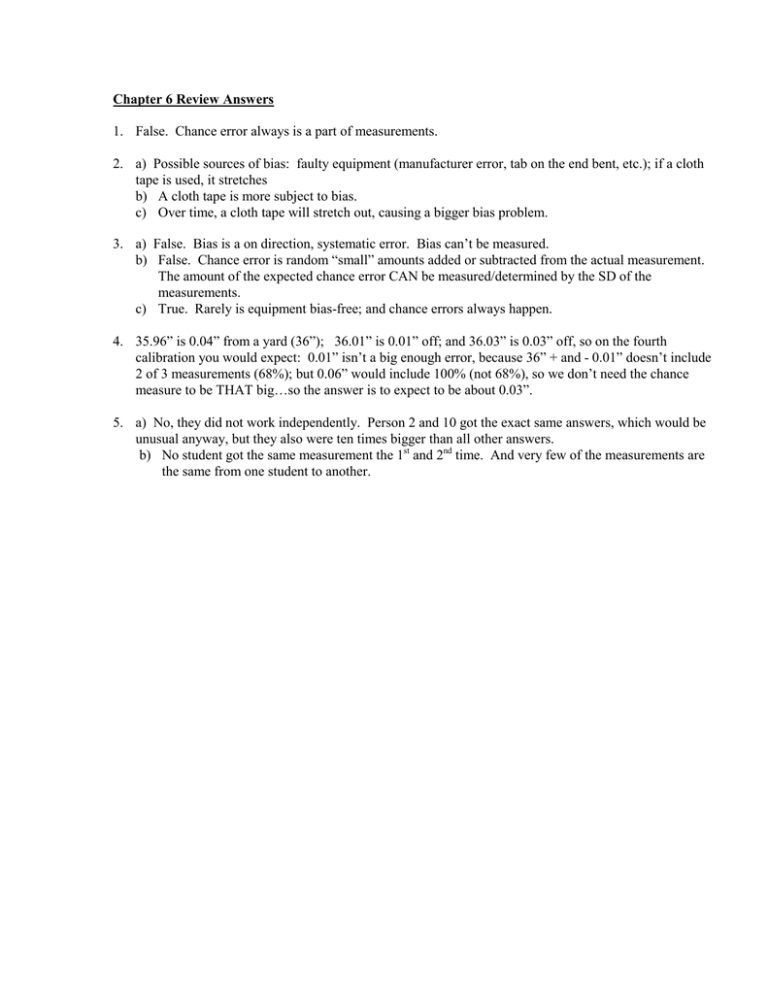
Chapter 6 Review Answers 1. False. Chance error always is a part of measurements. 2. a) Possible sources of bias: faulty equipment (manufacturer error, tab on the end bent, etc.); if a cloth tape is used, it stretches b) A cloth tape is more subject to bias. c) Over time, a cloth tape will stretch out, causing a bigger bias problem. 3. a) False. Bias is a on direction, systematic error. Bias can’t be measured. b) False. Chance error is random “small” amounts added or subtracted from the actual measurement. The amount of the expected chance error CAN be measured/determined by the SD of the measurements. c) True. Rarely is equipment bias-free; and chance errors always happen. 4. 35.96” is 0.04” from a yard (36”); 36.01” is 0.01” off; and 36.03” is 0.03” off, so on the fourth calibration you would expect: 0.01” isn’t a big enough error, because 36” + and - 0.01” doesn’t include 2 of 3 measurements (68%); but 0.06” would include 100% (not 68%), so we don’t need the chance measure to be THAT big…so the answer is to expect to be about 0.03”. 5. a) No, they did not work independently. Person 2 and 10 got the exact same answers, which would be unusual anyway, but they also were ten times bigger than all other answers. b) No student got the same measurement the 1st and 2nd time. And very few of the measurements are the same from one student to another.
